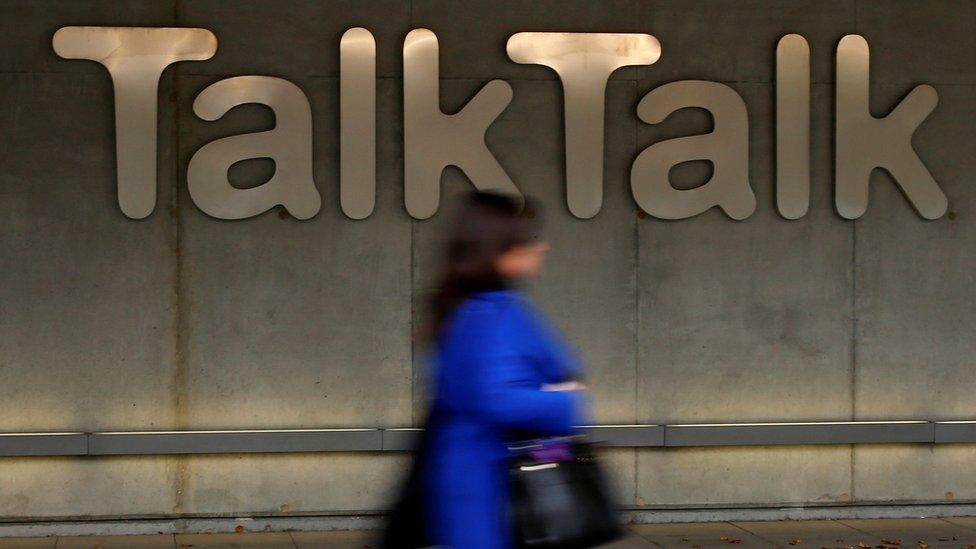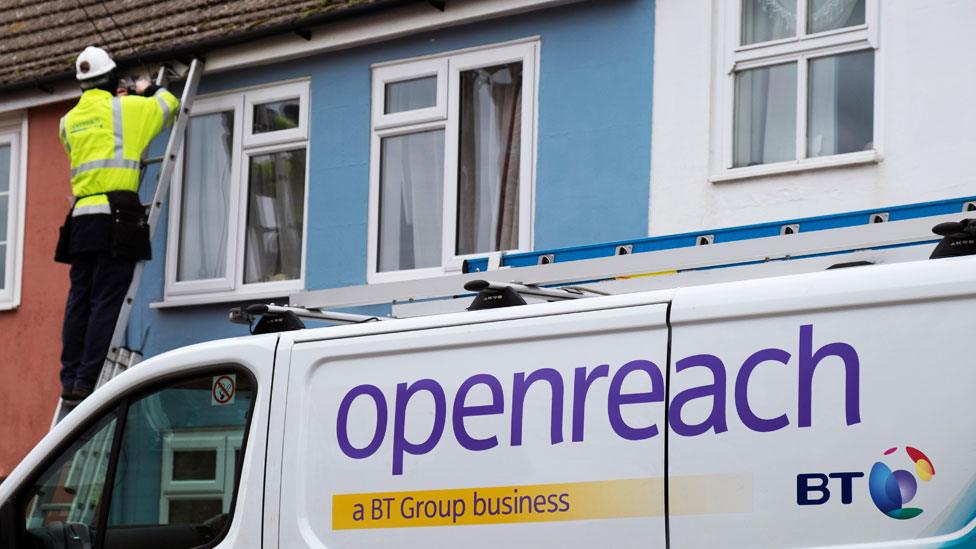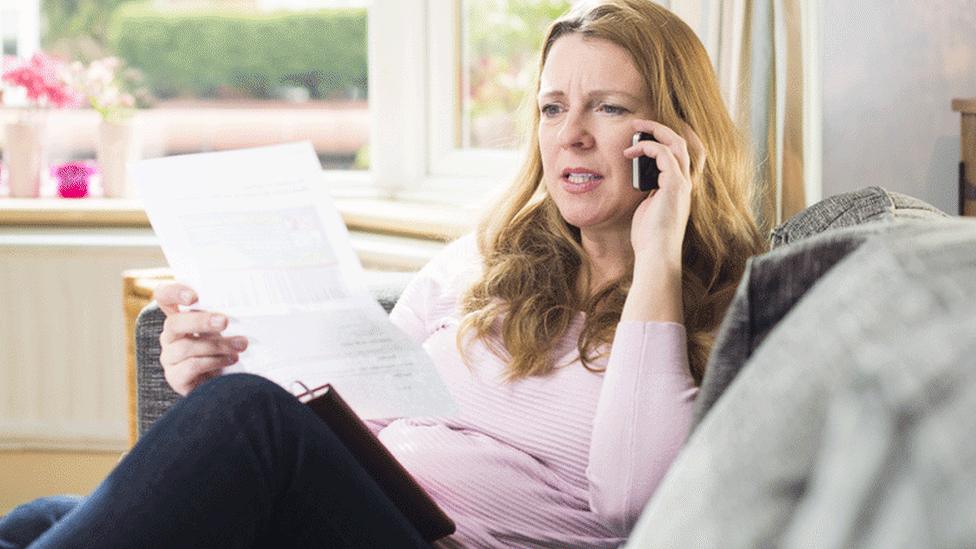TalkTalk shares slump after profit warning
- Published

Shares in TalkTalk have closed down by nearly 10% after the firm warned that profits would be significantly lower this year than previously thought.
TalkTalk also slashed its dividend and announced plans to raise £200m by selling shares on the stock exchange.
The firm is raising money to invest in a network of fibre cables that would allow much higher broadband speeds.
However, this year the telecoms group said expects a key measure of profits to be between £230m and £245m.
That is much lower than its forecast made in November, when it expected the same profit measure to be between £270m and £300m.
'Real momentum'
The company plans to build a fibre network that will supply high-speed broadband to three million homes and businesses.
To do that it has formed a joint venture with Infracapital, and TalkTalk will take a 20% stake in that business.
"We are making good progress towards putting TalkTalk at the heart of Britain's fibre future by building a full fibre network, bringing faster, more reliable internet to millions of homes and businesses," said Charles Dunstone, executive chairman of TalkTalk.
Last week, Openreach, the BT-owned firm that manages the UK's broadband infrastructure, vowed to introduce "ultrafast" fibre connections to three million premises by 2020.
Responding to TalkTalk's announcement, Jonathan Oxley, Ofcom's competition group director, said: "We welcome this latest announcement, which is another example of the real momentum behind full-fibre broadband.
"We're making it quicker and easier to lay these networks, to bring faster, more reliable broadband to people across the country. And we want to see further commitments from industry to build the networks that will support our future economy."

Analysis: Rory Cellan-Jones, BBC Technology Correspondent
TalkTalk is planning to reach homes in what it describes as "mid-sized" towns and cities.
That means it's unlikely to be offering fibre to the farm - or indeed the mid-sized village - any time soon. So, there is a risk that the countryside will see its digital divide with urban Britain widen further.
When I caught up with TalkTalk's chief executive, Tristia Harrison, she was keen to emphasise that there would be little overlap with BT, whose full-fibre plan is aimed mainly at big rather than mid-sized cities.
TalkTalk is beginning to use BT's ducts and poles for its network, after Ofcom chivvied the telecoms giant to open them up to rivals.
But Ms Harrison admits that most of the work will continue to involve digging up streets, albeit using the less disruptive "micro-trenching" technique TalkTalk has pioneered in York.

In addition to the share sale, to help fund its investments TalkTalk said it would "temporarily" cut its dividend to 2.5p per annum, returning to a "normalised" dividend of 7.5p when debt levels have been reduced.
The company's third quarter results showed it did have some success in attracting new business. Customer numbers rose by 37,000 in the three months to 31 December, compared with 26,000 in the quarter before.
The rate of churn - or percentage of customers leaving - fell to 1.3% over the three-month period. It was 1.6% in the previous quarter.
"It's 12 months since I announced my intention to take a more active role in the management of TalkTalk," Mr Dunstone said.
"Since then, we have reset the business and returned it to quarter-on-quarter customer growth."
- Published1 February 2018

- Published19 January 2018
